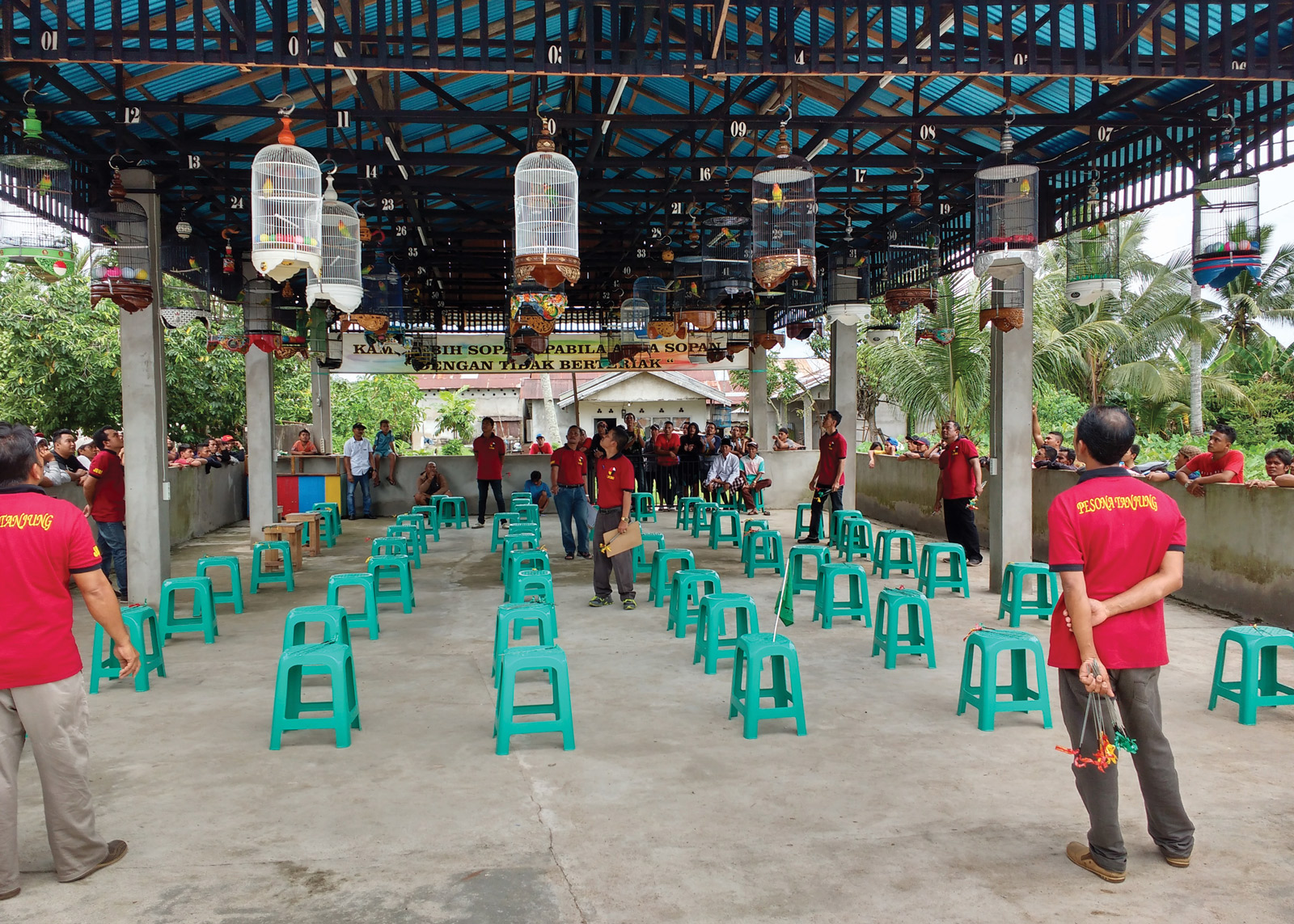Singing Disappearance
Javanese songbird competitions and the ventriloquizing of extinction
Adam Bobbette

Sultini, Eddy’s white lovebird, is anxiously jerking her head while sitting on the topmost peg of her wooden cage. She has been imported to Java from Europe, and beside her in an open-air structure are sixty other lovebirds—their small bodies an array of exuberant rainbow colors—brought from Europe, Taiwan, and nearby small towns. Their cages are suspended from a grid of metal rails that runs the length of the roof. Eddy and the others, all men, are waiting behind the fence that surrounds the competition ring. The jury have their clipboards and pens out, and the MC mumbles through his microphone that the final stragglers have hung their cages and left the field. Then he yells: “Alright birds, ready, go!”
Goaded, perhaps terrified, by the sudden eruption of exuberant clapping, yelling, chirping, and whistling from the men, the birds begin to flap around their cages and sing—or, more precisely, shout. Eddy, only a few meters from Sultini but still behind the fence, whistles and yells at her like an overbearing Little League parent until she says something, a quick string of chirps, short but loud, almost a screech. His face open with excitement, he points at her and yells at the judges: “55, 55, 55,” Sultini’s contestant number. But Sultini bites one of the bars of her cage and uses her beak to slide to the bottom (a violation of regulations because the judges can’t see the birds there, given that cage bottoms are opaque). She sits there in silence as if trying to disappear from the commotion. Eddy tries to laugh away the disappointment. The longest, brightest, and loudest song wins the competition and his hopes have sunk, with Sultini, to the bottom of the cage.
After four cacophonous minutes, the MC declares the end of the competition. The yelling fades away and the jury huddles in the center of the field to compare notes. Eddy learns Sultini’s come in sixth place, her surprisingly high finish a sign of how mediocre this competition had been. He lowers her cage, gives her some water and banana, and gets ready to go home.
Eddy spends a lot of his spare time competing at the bird field. He enjoys the company, but he also hopes to supplement the meager salary he makes from selling cars. Like many of the men at the field, he is middle-aged, pot-bellied, and he keeps the nails on his thumb and pinkie extra long, with the tips delicately rounded. For working-class and middle-class Javanese men who play with birds, and call each other “bro” in English, the long nails reference Bima, a mythical tough guy of Indonesian legend whose thumbnail once gave shade to the world. Another conventional accessory of this group is a heavy ring with a stone that has special powers. Eddy’s is polished amber, but he avoids telling me what it can do.